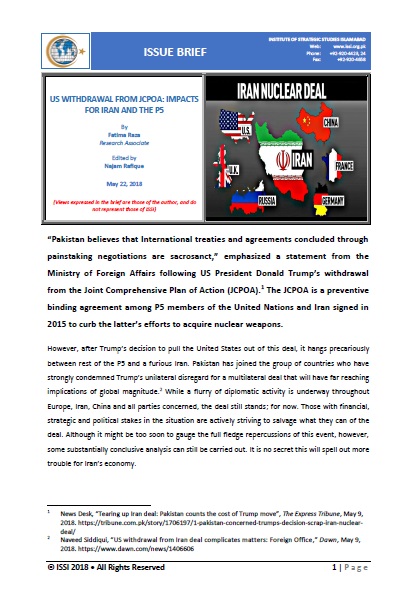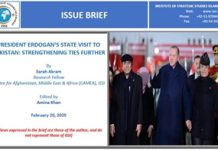“Pakistan believes that International treaties and agreements concluded through painstaking negotiations are sacrosanct,” emphasized a statement from the Ministry of Foreign Affairs following US President Donald Trump’s withdrawal from the Joint Comprehensive Plan of Action (JCPOA).[1] The JCPOA is a preventive binding agreement among P5 members of the United Nations and Iran signed in 2015 to curb the latter’s efforts to acquire nuclear weapons.
However, after Trump’s decision to pull the United States out of this deal, it hangs precariously between rest of the P5 and a furious Iran. Pakistan has joined the group of countries who have strongly condemned Trump’s unilateral disregard for a multilateral deal that will have far reaching implications of global magnitude.[2] While a flurry of diplomatic activity is underway throughout Europe, Iran, China and all parties concerned, the deal still stands; for now. Those with financial, strategic and political stakes in the situation are actively striving to salvage what they can of the deal. Although it might be too soon to gauge the full fledge repercussions of this event, however, some substantially conclusive analysis can still be carried out. It is no secret this will spell out more trouble for Iran’s economy.















